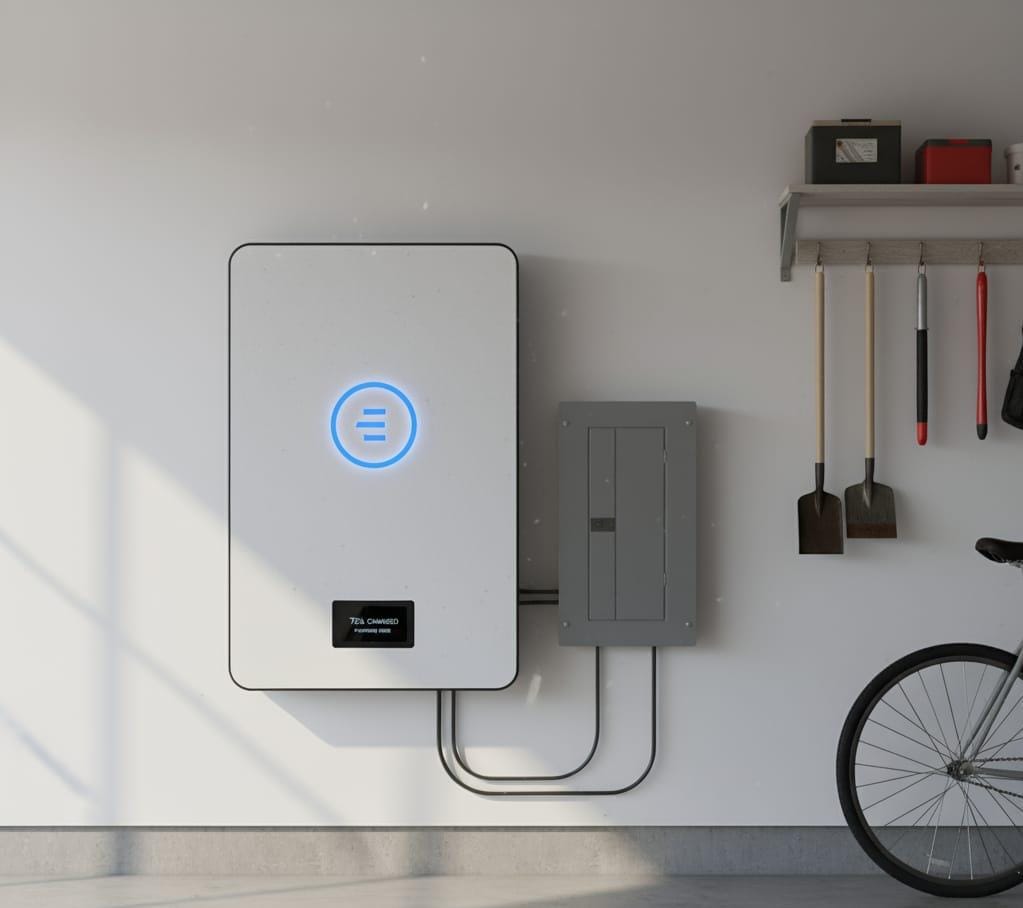Home Battery Storage Systems: Maximizing Your Solar Energy and Energy Independence

As more homeowners invest in solar energy, storing the energy you generate has become increasingly important. Solar panels can produce more electricity than your home consumes during peak sunlight hours, but without proper storage, that excess energy often goes back to the grid, sometimes with limited financial return. This is where home battery storage systems come in—they allow you to capture, store, and use your solar power when you need it most, maximizing savings and energy independence.
Whether you’re curious about the key components of a solar energy system or exploring ways to make your home more energy-efficient, understanding battery storage is a crucial step toward a sustainable, self-sufficient home.
Why Home Battery Storage Matters
Installing solar panels without a storage system is like owning a smartphone but never charging it at night. You’re not fully leveraging the potential of your investment. Home battery storage offers several benefits:
- Energy independence: Store your solar energy and use it during evenings, cloudy days, or power outages.
- Cost savings: Reduce reliance on utility companies during peak rates.
- Backup power: Keep critical appliances running during blackouts.
- Sustainable living: Minimize energy waste and carbon footprint.
For homeowners planning their solar journey, integrating storage complements strategies like ways to take advantage of passive solar energy in your home and improves overall system efficiency.
How Home Battery Storage Works
A home battery system stores electricity generated by solar panels for later use. Here’s a simplified breakdown:
- Energy generation: Your solar panels produce electricity during the day.
- Energy storage: Excess electricity is stored in a battery rather than sent to the grid.
- Energy usage: Stored electricity powers your home when solar production is low or demand is high.
- Grid integration (optional): Some systems allow seamless switching between battery power and the utility grid.
Understanding these processes ties directly into grasping the key components of a solar energy system, including inverters, charge controllers, and monitoring devices.
Types of Home Batteries
Not all batteries are created equal. Your installer will guide you based on your energy needs, budget, and space. Common types include:
- Lithium-ion batteries: High efficiency, longer lifespan, and compact design—ideal for most modern homes.
- Lead-acid batteries: Cost-effective and proven, though bulkier and shorter lifespan compared to lithium-ion.
- Flow batteries: Highly durable and scalable, suitable for larger homes or specialized energy needs.
Your choice affects system performance, cost, and maintenance requirements, so discuss options thoroughly with your installer. It also ties into decisions about which type of solar panel is most efficient to ensure your storage and generation systems work seamlessly together.
Financial Considerations
Home battery storage can be a significant investment, but the long-term benefits are often worth it. Consider these factors:
- Upfront costs vs long-term savings: Batteries add to your initial solar system cost but can reduce electricity bills over time.
- Tax incentives and rebates: Many governments offer incentives to offset battery installation costs.
- Battery lifespan: Lithium-ion batteries typically last 10–15 years, affecting your overall return on investment.
- Sizing the system: Properly sized batteries ensure you store enough energy to meet household needs without overspending.
If you’re also installing solar panels, reviewing factors that affect the cost of solar panels for homes helps you plan a cohesive and cost-effective energy system.
Planning Your Home for Efficient Storage
Optimizing your home for battery storage improves performance and efficiency:
- Energy audit: Identify high-energy appliances and consider energy-efficient replacements.
- Roof and solar panel evaluation: Ensure panels generate sufficient energy to charge batteries effectively.
- Smart energy management: Use apps or home energy management systems to monitor usage and optimize battery discharge.
- Maintenance: Keep batteries in a cool, ventilated area, and schedule professional inspections.
Combining these strategies with solar panel optimization can significantly enhance savings and energy independence, especially when considering factors to consider when installing solar panels in your home.
Installation and Professional Support
Home battery installation is a technical process that requires certified expertise:
- Site assessment: Determine optimal battery location and capacity based on household consumption.
- System design: Integrate battery with your solar panels, inverters, and electrical systems.
- Permitting: Handle local regulations, utility notifications, and safety approvals.
- Installation and testing: Certified installers ensure proper wiring, connectivity, and performance monitoring.
- Post-installation support: Regular inspections and troubleshooting guarantee optimal performance.
For a seamless installation, choose installers who understand both solar panels and storage systems, ensuring your setup maximizes energy efficiency and durability while aligning with innovations like the future of solar-powered transportation.
The Future of Home Energy Storage
Battery technology continues to evolve rapidly. Future trends include:
- Higher-capacity batteries: Longer-lasting and more compact designs for residential use.
- Integration with electric vehicles (EVs): Store solar energy in your home and charge EVs sustainably.
- Smart grids: Batteries can interact with the grid to sell excess energy or provide demand-response services.
Keeping up with innovations allows homeowners to expand their energy independence and sustainability footprint, complementing smart solar systems and storage setups.
Choosing the Right Installer for Your Battery System
Selecting a certified, experienced installer is critical. Here’s a quick checklist:
- Confirm licensing, certifications, and insurance coverage.
- Review past projects and customer testimonials.
- Discuss battery type, sizing, and financial incentives.
- Ensure they manage permits, inspections, and post-installation support.
A professional installer ensures that your battery storage system is safe, efficient, and optimized for your home’s energy needs.
Take the Next Step Toward Solar Energy Independence
Home battery storage turns your solar system into a complete, energy-efficient powerhouse. By capturing and storing your own solar electricity, you gain control over energy costs, reduce environmental impact, and enjoy peace of mind during outages. Talk to a certified solar installer today to explore battery options tailored to your home and start maximizing your solar investment. For more insights, check out leasing vs buying solar panels to determine the best approach for your system.